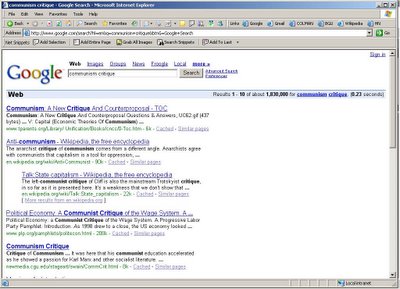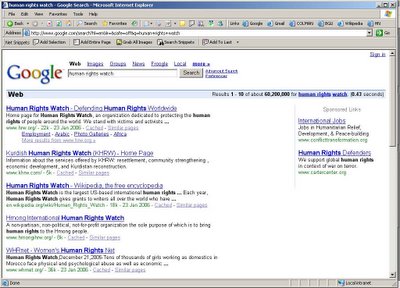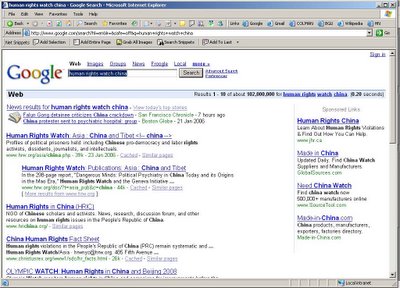I am trying to understand this concept of development communication. Right now I am reading a book by Clement Asante called "Press Freedo and Development". Putting in a nutshell my understanding of the progress of the subfield of development communication it has gone from applying a modernization theory to alternative, more reflexive(?) approaches, one of which is development support communication. In a way it is a transition from the strong influences paradigm to a more moderate view – if the earlier approaches talked about communication actually leading developmental processes, the later approaches are talking about communication being part of a more complex matrix of social, economic, cultural and political influences.
One of the terms described in the book is that of "development news". Deriving from a body of research that shows that developing nations are being portrayed by the Western media mostly in terms of catastrophes, political troubles, human suffering and misery, she suggests an alternative approach. Here is how Asante describes it:
"Development news is basically a development-oriented news story that gives a positive image of a country. This news item tries to raise national consciousness, promote national unity and integration, and help to improve the quality of life of the people in terms of provision of health services, food production, community development and alike. Thus, development journalism or communication can be defined as the critical examination, evaluation and reporting of the relevance of a development project to national and local needs. In fact, any news item that tends to focus or highlight any form of social change, development, growth, or improvement in a society or nation falls under the development communication concept." (p. 150)
Well, this normatively charged approach may appear naïve, not rigorous and simplistic. Moreover there is a series of question raising about the journalistic norms involved and the role of journalism as a social institution. Later Asante quotes Narinda Aggarwala (1979) who wrote:
"Development journalism is the use of all journalistic skills to report development processes in an interesting fashion. It may require high skills and hard work but the rewards of this kind of journalism can be tremendous. It could almost lead to the humanization of international news"
And then she quotes Schramm and Atwood (1981):
"By development news, these Third World spokesmen mostly mean "good" news."
Reading all this (and more) I had difficult time accepting the idea that development news is necessarily optimistic news. What about some healthy criticism of the regime, the industry, the civil society? What about media being an accountability mechanism in a democratic (or even semi-democratic) society? There is something intuitively wrong in viewing media as a tool of dissimilation of positive news only.
As the same time, reading this, made me thinking about the concept of "peace journalism", which is also trying to promote a normative stand in conflict coverage. I think that there are parallels, while at the same time PJ has some more advanced ways of conceptualizing its position. The basic argument there would be that as journalists take a normative stand in issues of crime, drugs, sexual violence, etc., they can also take a stand in coverage of conflicts. The important distinction however, is that the taken stand is more of a macro character, rather than explicit support to the parties. Similarly to an overall notion in crime coverage that crime is bad, there could be a notion that in conflict situation, regardless on who is right and who is wrong, the conflict itself is bad. At first, it is rather difficult to grasp, but reading more on the subject you do realize how contemporary media do not take a stand towards conflicts, in a way assuming that conflicts are exogenously imposed and they are there to stay. The claim of PJ is by changing the prism and looking at the conflict itself as a socially undesirable phenomenon can contribute to changing the social mindset as well.
Here I can see a possible link to development support journalism as taking a macro normative stand that the development is good. However it does not imply that from now on developing nations should receive positive and optimistic coverage only. The idea is probably more of a self aware journalism contributing to the shift of social mindset.
Another interesting point which is kind of rising from out PEACE study and in a way from Galtung's writing is that talking about peace, you have to talk about socio-economic development. Galtung is talking about positive peace, which is a motion towards inclusion and transparency not just among societies, but also within the societies themselves. Thus the positive peace includes socio-economic development and inclusion within and among nations, which in turn can strengthen my point about similarities in journalistic treatment of peace and development.
Any thoughts?

























